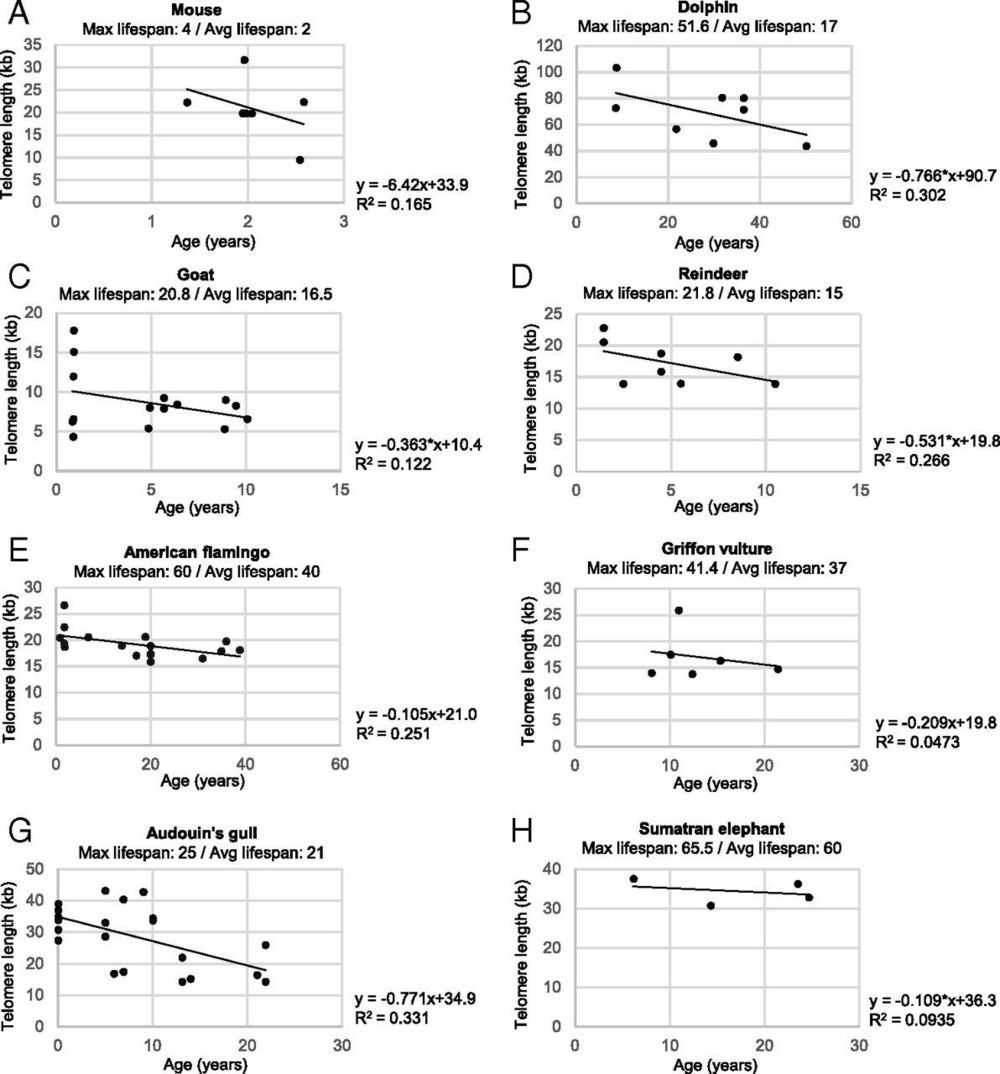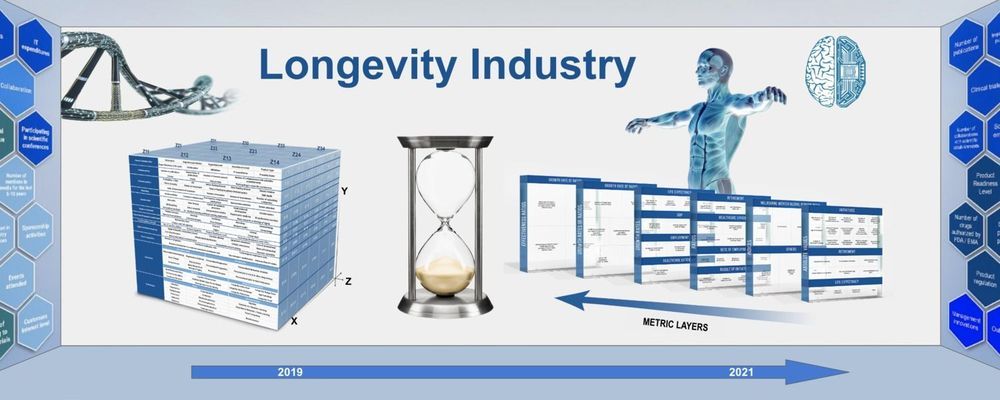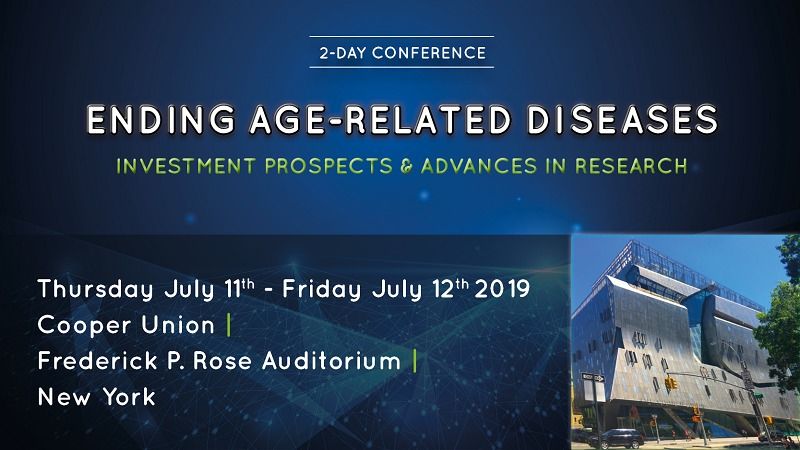Archive for the ‘life extension’ category: Page 395
Jul 13, 2019
Add 12 to 14 Years to Healthy Life Expectancy
Posted by Paul Battista in category: life extension
When I founded the Life Extension® group in 1977, our unique purposes attracted a lot of media attention.
A question reporters often asked me was:
“Why do you want to live so long?”
Continue reading “Add 12 to 14 Years to Healthy Life Expectancy” »
Jul 12, 2019
Telomere shortening rate predicts species life span
Posted by Paul Battista in categories: biotech/medical, life extension
The exact causes of aging are still not understood, and it is unclear why some species live less than 1 d, while others can live more than 400 y. Research suggests that telomeres are related to the aging process, but a clear relationship between the life span of a species and initial telomere length has not been observed. Here, we measure the telomere lengths of a variety of different species. We find that, in fact, there is no strong correlation between the life span of a species and initial telomere length. However, we find a strong correlation between the telomere shortening rate and the life span of a species.
Telomere shortening to a critical length can trigger aging and shorter life spans in mice and humans by a mechanism that involves induction of a persistent DNA damage response at chromosome ends and loss of cellular viability. However, whether telomere length is a universal determinant of species longevity is not known. To determine whether telomere shortening can be a single parameter to predict species longevities, here we measured in parallel the telomere length of a wide variety of species (birds and mammals) with very different life spans and body sizes, including mouse (Mus musculus), goat (Capra hircus), Audouin’s gull (Larus audouinii), reindeer (Rangifer tarandus), griffon vulture (Gyps fulvus), bottlenose dolphin (Tursiops truncatus), American flamingo (Phoenicopterus ruber), and Sumatran elephant (Elephas maximus sumatranus). We found that the telomere shortening rate, but not the initial telomere length alone, is a powerful predictor of species life span.
Jul 12, 2019
The Longevity Industry will be the Biggest and Most Complex Industry in Human History
Posted by Paul Battista in categories: biotech/medical, finance, government, life extension, robotics/AI
The Longevity industry will dwarf all other industries in both size and market capitalization and will require unprecedented sophistication in its approach for assessment and forecasting from the start to neutralize challenges and manifest opportunities
The Longevity Industry is not just about biotechnology and biomedicine. Rather, it consists of several distinct segments: Geroscience, Biomedicine, AgeTech and Finance. Despite this seemingly clear market segmentation, many of these sectors intersect with various domains of science and technology, such as advanced biomedicine, preventive medicine, digital health, AI, financial systems, pension systems and government national strategies.
One of the biggest challenges in assessing the Longevity industry is the extreme broadness of the sector. Hundreds of sectors, industries and domains of science and technology must be analyzed in order to obtain a concrete and comprehensive understanding of the dynamics, trends and direction of the industry. This situation is entirely unique to the Longevity industry. Due to this extreme level of complexity, realistic assessment and forecasting is extremely challenging, and the methods currently being applied for assessment of the biotech and biomedical industries are completely inadequate.
Jul 12, 2019
Ageing Debate between Vadim Gladyshev & Aubrey de Grey on Damage Repair
Posted by Paul Battista in categories: biotech/medical, food, life extension

https://www.youtube.com/watch?v=of2F3xgImi0
Is comprehensive damage repair feasible? A debate at Undoing Aging 2019 between Vadim Gladyshev, Harvard Medical School and Aubrey de Grey, SENS Research Foundation.
PLEASE LIKE & SUBSCRIBE FOR MORE FROM MY NMN CHANNEL
Continue reading “Ageing Debate between Vadim Gladyshev & Aubrey de Grey on Damage Repair” »
Jul 11, 2019
Will Giuliano win this week’s trivia about longevity history facts?
Posted by Nicola Bagalà in category: life extension
Jul 10, 2019
A Link Between Telomere Shortening and Species Aging
Posted by Steve Hill in categories: biotech/medical, genetics, life extension
A recently released study from Maria Blasco and her team of researchers at the Spanish National Cancer Research Center (CNIO) shows that the rate of telomere shortening is strongly correlated with the maximum lifespan of animal species.
Telomeres
Telomeres, which are simply repeating segments of DNA on the ends of our chromosomes, serve two critical functions: They protect the ends of our chromosomes, preventing genetic damage, and they serve as a clock, limiting the number of times that our cells can divide. This limit, known as the Hayflick limit, serves as a basic defense against cancer. However, telomere attrition is a primary hallmark of aging and leads to cellular senescence and other age-related disorders.
Jul 10, 2019
The Rise of Transhumanism: Emerging Worldviews 11
Posted by Steve Nichols in categories: life extension, robotics/AI, transhumanism
https://paper.li/e-1437691924#/
Forms of Transhumanism
Transhumanism takes a variety of overlapping forms united around a common commitment to use science and technology to improve human intellect and/or physiology. Many, though not all, are committed to Posthumanism; others focus on artificial intelligence and its implications for human life. All of them raise important worldview questions, though not always the same ones.
Continue reading “The Rise of Transhumanism: Emerging Worldviews 11” »
Jul 9, 2019
Cryonics: Medicine, Or The Modern Mummy?
Posted by Paul Battista in categories: biotech/medical, cryonics, life extension
The cryonics debate explained, plus new issues in waking the dead. Would cryonics customers even be welcomed in the future?
Jul 9, 2019
Official Ending Age-Related Diseases Press Release
Posted by Paul Battista in categories: finance, life extension
The Life Extension Advocacy Foundation, a nonprofit organization dedicated to promoting healthy longevity and aging research through crowdfunding and advocacy initiatives, is hosting its second annual scientific conference, Ending Age-Related Diseases: Investment Prospects and Advances in Research, at the Cooper Union in New York City on July 11th-12th.
The goal of this conference is to promote collaboration between academia, biotech companies, investors, regulators, public health advocates, and doctors in order to foster the creation of interventions to relieve our aging society from the burden of age-related diseases. It is supported by Genome Protection Inc., which is developing therapies to counteract harmful viral elements in our genome that provoke chronic inflammation, and Icaria Life Sciences Inc., which provides contract research in the field of geroscience.
The morbidity from chronic age-related diseases is increasing proportionally to the aging of the global population, representing a challenge to social protection and healthcare systems around the world. The development of next-generation drugs and therapies that could directly target the processes of aging to more effectively prevent and cure age-related diseases has now become a priority, yet the industry is clearly facing unique financial, development, and regulatory bottlenecks.
















